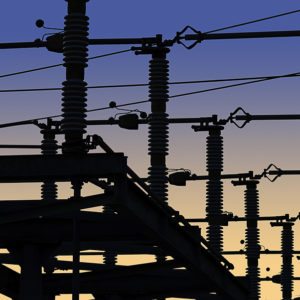For Pennsylvania to prosper, we must solidify an energy policy that makes sense for the entire commonwealth. A sensible energy policy puts affordability and reliability first because, at the end of the day, we must keep the lights on.
Lurking in the shadows of judicial fiat, war is being waged on reliable electricity generation. While shrouded in climate justice, there is a cloak-and-dagger lawfare campaign to impose radical Green New Deal policies that cost us, the consumers, much more than we realize.
In case you have not been looking at your electricity bill lately, costs have risen – for everyone. On average, Pennsylvania families are spending over $3,000 a year on electricity. Anecdotes of Pennsylvanians having to choose between medication and air conditioning, and businesses closing because bills were unaffordable, are all too commonplace for us to be complacent.
Let’s not forget the amount of money we pay at the gas pump every week.
The Democrats seem to feel otherwise. Instead of serving others, they are serving the green industrial complex. So, the question is, how are they doing it? Through activist judges.
We are seeing unprecedented lawsuits coming from the radical left to impose their failing Green New Deal policies onto the unsuspecting and overpaying consumer.
I have two examples to share with you.
First, in 2024, the Democrat-controlled Bucks County Board of Commissioners held a secret meeting that authorized a lawsuit against energy-producing companies with the strategic goal of bankrupting those companies, killing thousands of Pennsylvania jobs, crippling our electricity infrastructure, and prompting gas prices to skyrocket.
The mysterious authorization of that lawsuit is problematic on multiple fronts, but most importantly, it flies in the face of Pennsylvania’s Sunshine Law requirements. The lawsuit authorization should have been debated honestly, openly, and with public input. The Bucks County Court of Common Pleas can and should dismiss the case on this basis alone.
The second example is Gov. Josh Shapiro’s appeal to implement an energy tax on producers. The Regional Greenhouse Gas Initiative (RGGI) is an energy tax enacted through executive order by the previous governor that will quadruple electricity rates. In 2023, the Pennsylvania Commonwealth Court ruled the tax unconstitutional.
But that hasn’t stopped Shapiro. He is continuing this lawfare to cozy up to the radical left for what can only be for political gain. This case (and our electricity bills) is now in the hands of the Democrat-controlled Pennsylvania Supreme Court.
Many see the Bucks County lawsuit and Shapiro’s push for an energy tax as part of the left’s sketchy attempt to jumpstart a transition to intermittent energy sources. We simply cannot afford it if Bucks County and other courts greenlight procedurally deficient lawsuits with the ideological goals of the left.
Energy demand is currently outpacing the energy supply, and the increased reliance on AI and the construction of data centers is only making the demand greater and the need for reliable baseload energy even more dire. It is the failed policies of the Green New Deal that have forced reliable electricity generators to flee Pennsylvania. From the Renovo electric plant in Clinton County to the Invenergy plant in Allegheny County, our state missed out on billions of dollars of energy investment.
Pennsylvania has an opportunity to lead a national energy revival that lowers electricity bills, creates family-sustaining jobs, and invigorates previously stagnant parts of our Commonwealth. Pennsylvania House Republicans envision a rational path forward for a Pennsylvania energy policy that prioritizes affordability and reliability. Pennsylvanians deserve nothing less.
We are at a historic crossroads. We could quite literally be in the dark if we do not get this right. At a time when we should be aligning in the name of prosperity for all of Pennsylvania, Republican and Democrat approaches to energy policy couldn’t be more different. Because when the left cannot win at the ballot box, they circumvent the voice of the people through the courts.

